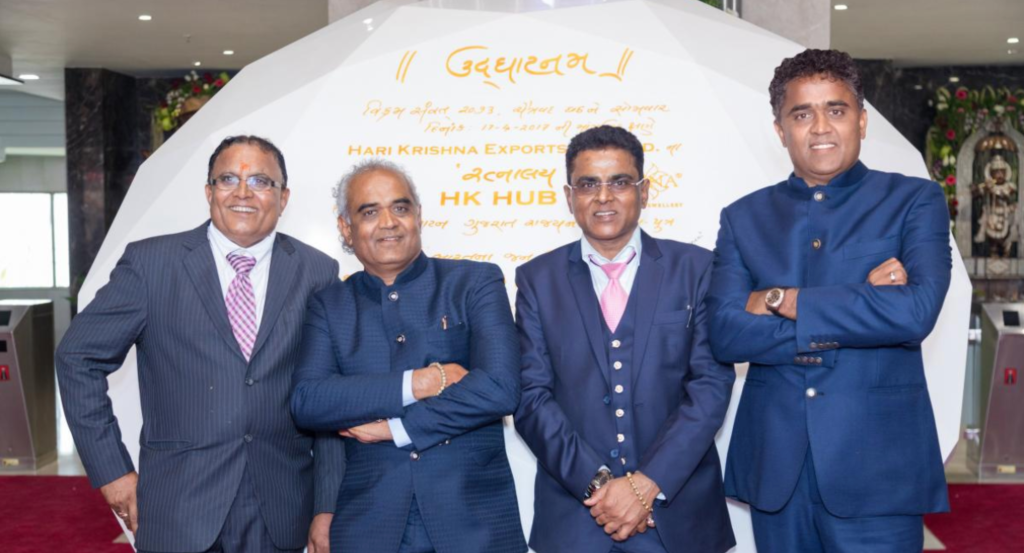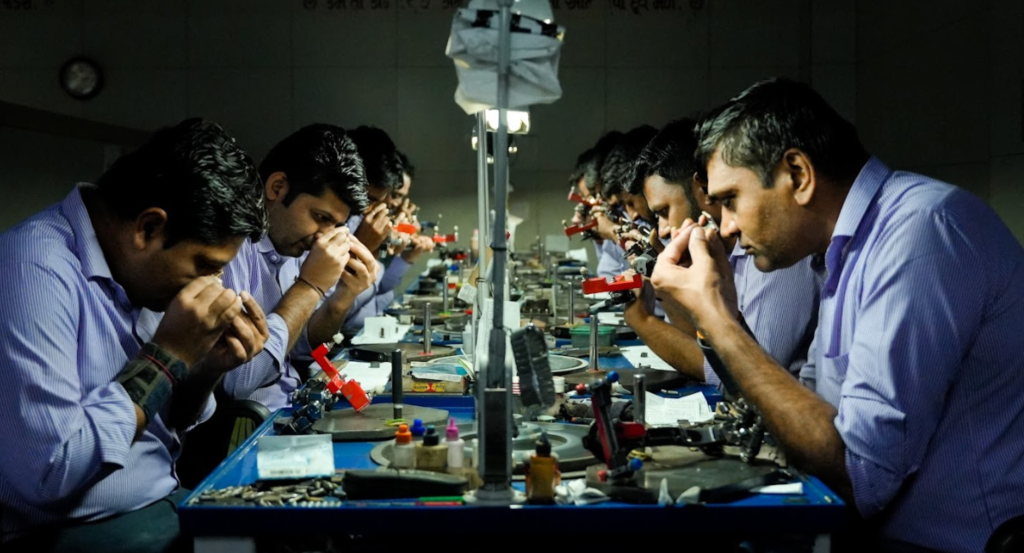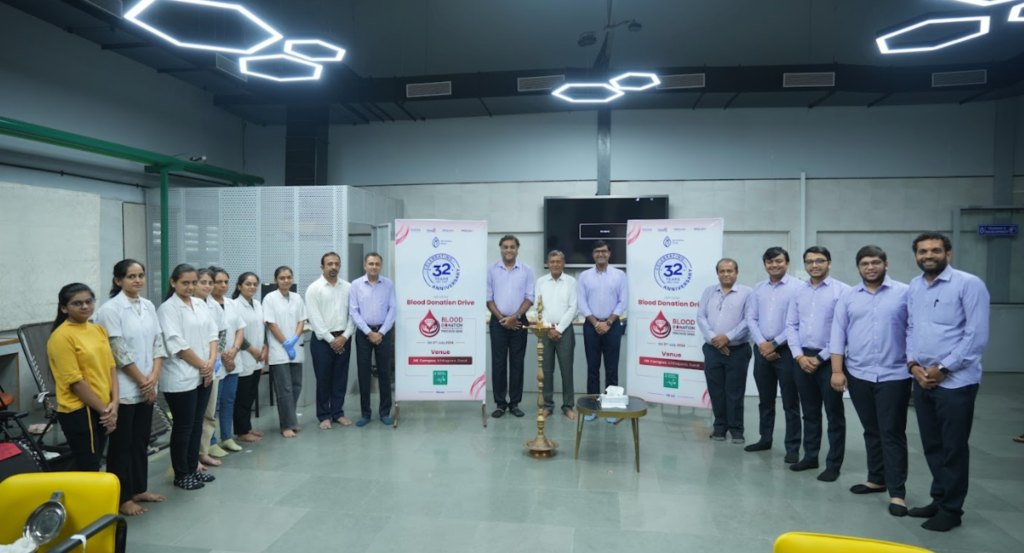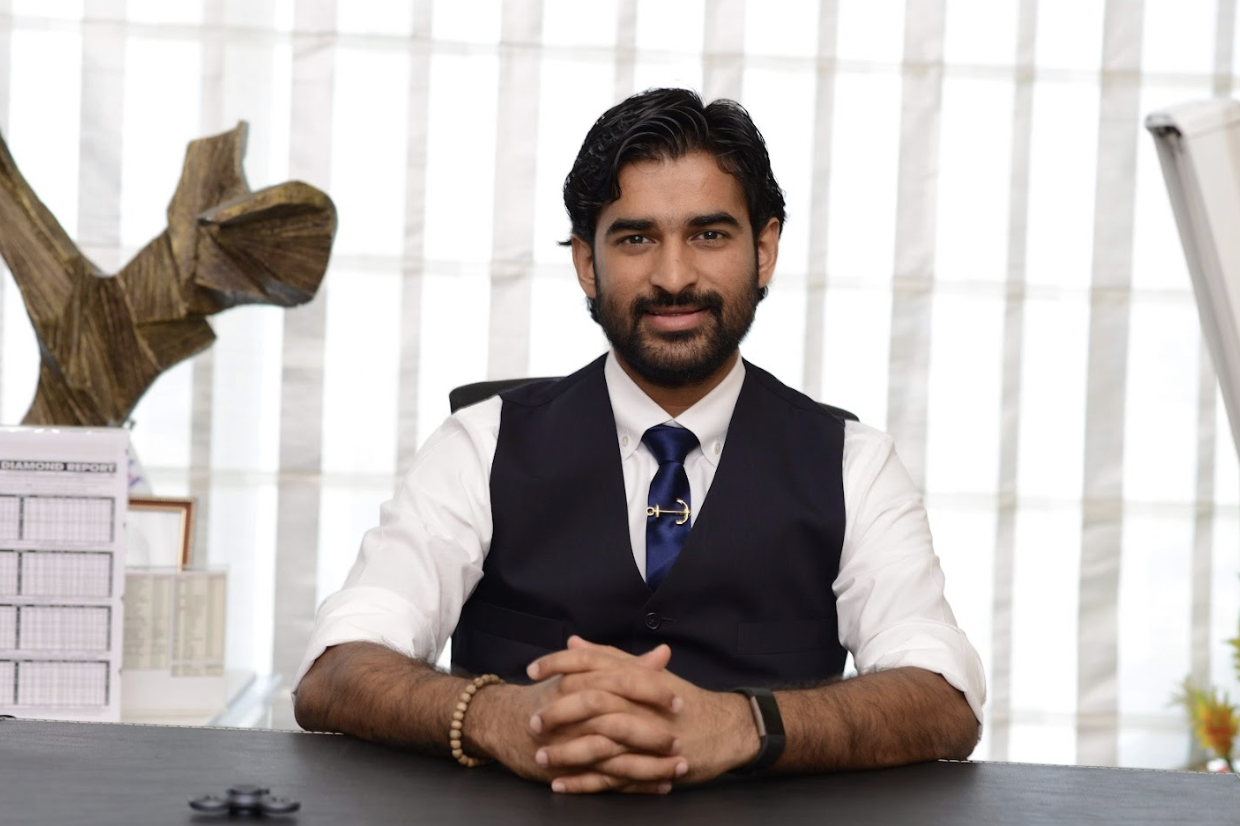Brijesh Dholakia is the second generation diamontaire of Hari Krishna Exports Pvt. Ltd., a leading diamond manufacturer and exporter in India. In his role, he manages the company’s manufacturing and sales and represents HK at international jewellery shows and industry events. Brijesh is deeply committed to sustainability and social responsibility.
He serves as a Board Director of the Dholakia Foundation, focusing on community empowerment and environmental protection. He is also the driving force behind initiatives like the Dholakia Nirman open learning school and Kisna Nature Park and led the Foundation’s participation in the 2023 United Nations Water Conference in New York City.
What drove HK to join the Responsible Jewellery Council (RJC)?
The Responsible Jewellery Council (RJC) operates on the principle of responsible business, promoting practices that protect people and the planet—an objective achievable only through collaboration. Similarly, Hari Krishna Exports (HK), globally renowned for its diamond expertise, has always prioritised ethical business practices. Joining the RJC was a natural step to formalise and strengthen these commitments. As a member, we reinforce our dedication to transparency, sustainability, and social responsibility, further solidifying our position as a global leader in the diamond industry.

What do you wish more people knew about the diamond industry?
The most important aspects of the diamond industry in today’s fast growing era are traceability and sustainability, at HK we added renewability. We prioritise our 9000+ employees and the community, hence the extensive record of giving back to society and nature long before government sanctioned CSR in 1996. In 2002 and 2014, we made global headlines for gifting cars to employees as a Diwali bonus. Apart from this, we have Mission 102030 – so far we have planted over 700,000 trees. With that, we wished more people knew that sustainability has went beyond corporate compliance and must be an integral part of the business perspective.
Tell us how HK was created?
HK’s rags-to-riches story is nothing short of extraordinary. Our visionary and philanthropic founder, Savjibhai Dholakia, began his career in the diamond industry as a diamond polisher in Surat at the age of 12. Over the years, he honed his skills in diamond cutting, polishing, and brokerage.
In 1992, he founded Hari Krishna Exports with the essential support of his brothers: Ghanshyambhai Dholakia, the marketing and finance expert who spearheaded global expansion; Tulsibhai Dholakia, the production mastermind who ensured workforce efficiency; and Himmatbhai Dholakia, who drove expansion and maximized output. By mastering the blend of tradition with innovation, the second generation strives not only to sustain but also to enhance our position as a leader in the diamond industry, ensuring continued success for generations to come. As we transition into the next generation at Hari Krishna Exports, we are committed to upholding and advancing the legacy of excellence established by our founders in the diamond business.
With a solid foundation built on a wealth of experience and expertise, coupled with a forward-thinking mindset, we are moving swiftly toward leveraging new technologies and innovations to propel HK forward.

Why is sustainability and transparency important for the future of the diamond industry?
Sustainability lies at the heart of our operations. We are dedicated to protecting the environment, supporting communities, and ensuring ethical practices throughout our supply chain. By investing in sustainable initiatives, we aim to create a positive impact and safeguard the future of our industry.
Transparency forms the foundation of trust with our invaluable clients and loyal employees. We believe in open communication regarding our sourcing, production, and environmental impact. By providing clear information to our customers, we build confidence and strengthen our relationships. Sustainability reflects our commitment to the community, while transparency shows how we bring this commitment to life. We have long maximized the use of Tracr diamonds in our manufacturing system, ensuring the authenticity of our diamonds’ origins and tracking their entire journey.
We’ve also adopted the Everledger system, a secure, trusted, and transparent blockchain platform for trading diamonds. To maintain transparency throughout the supply chain, we utilize QR code technology developed by the iTraceiT platform. As a result, we launched the My Diamond Story program in 2010 in the U.S., a first of its kind. Over the years, we’ve learned that sustainability extends beyond environmental initiatives; it is a comprehensive strategy that includes social well-being, environmental responsibility, and economic viability. To further our commitment, we have organized events such as the Statue of Unity and Haridwar tours for employees and encouraged both our team and Padma Awardees to join our plantation advocacy efforts during the Padma Shri Gathering event we hosted.
Do you have any exciting projects or initiatives we should look out for?
Absolutely. Our two principal projects—Mission 102030 and Mission River—are continuously growing and making an impact. Mission 102030 is an ambitious initiative aimed at planting 10 million trees by 2030, while Mission River is dedicated to conserving 100 billion liters of water by 2027. In addition to these major projects, we have implemented regular eco-friendly practices. For example, we plant a tree to commemorate the opening of each new Kisna Gold & Diamond Jewellery Brand franchise. We further demonstrate our commitment to environmental sustainability by planting a tree for every purchase made by Hari Krishna Export clients and for every visit to our trade show booth.


